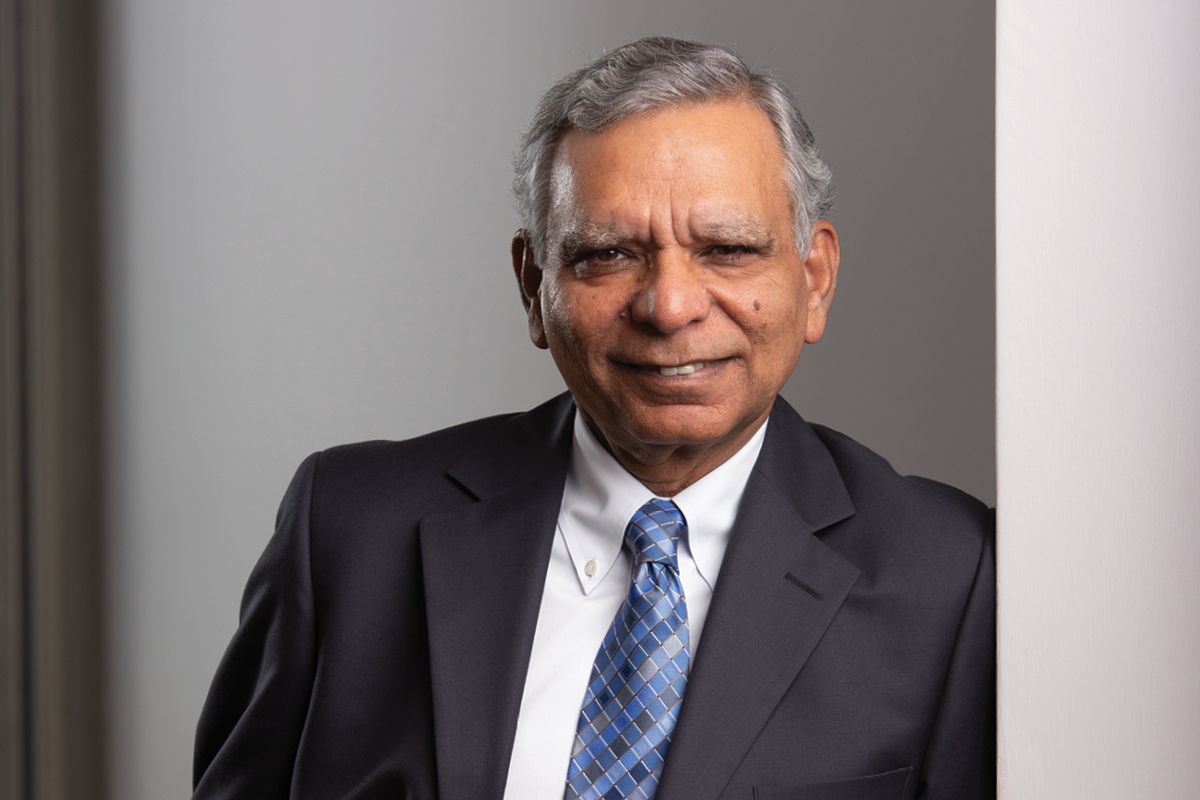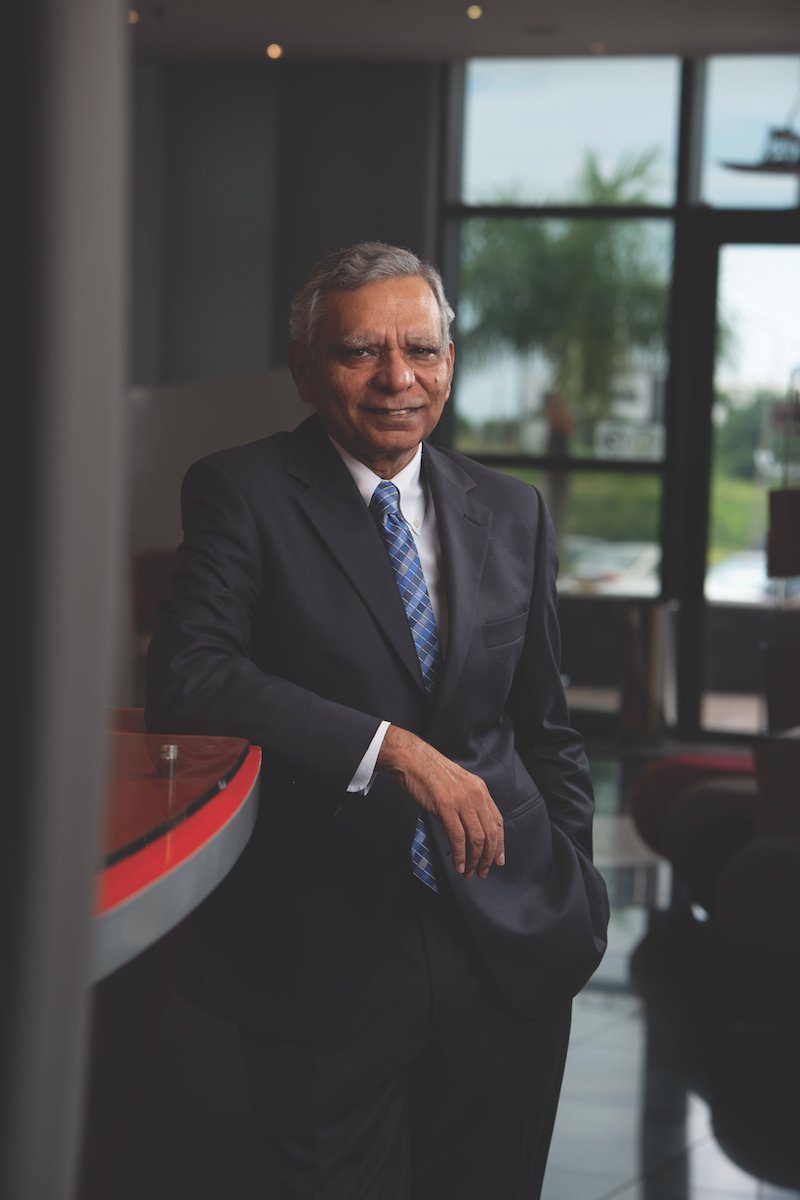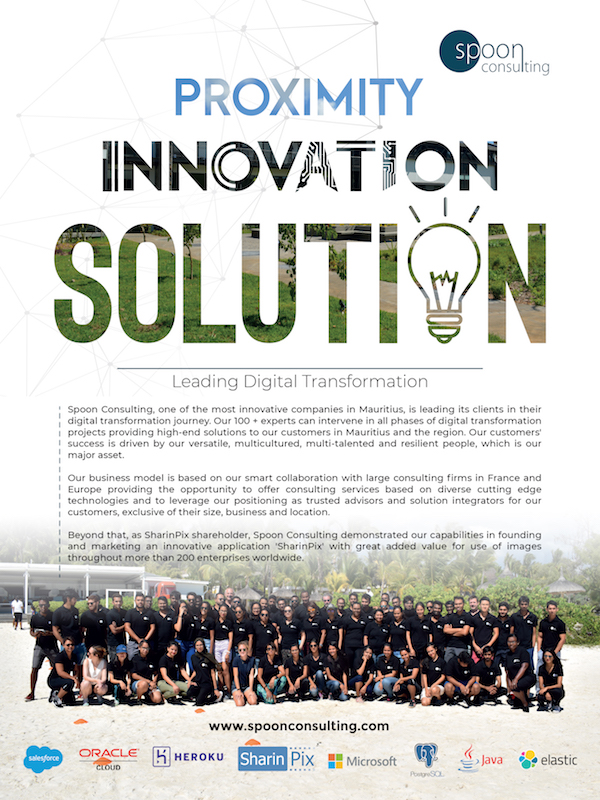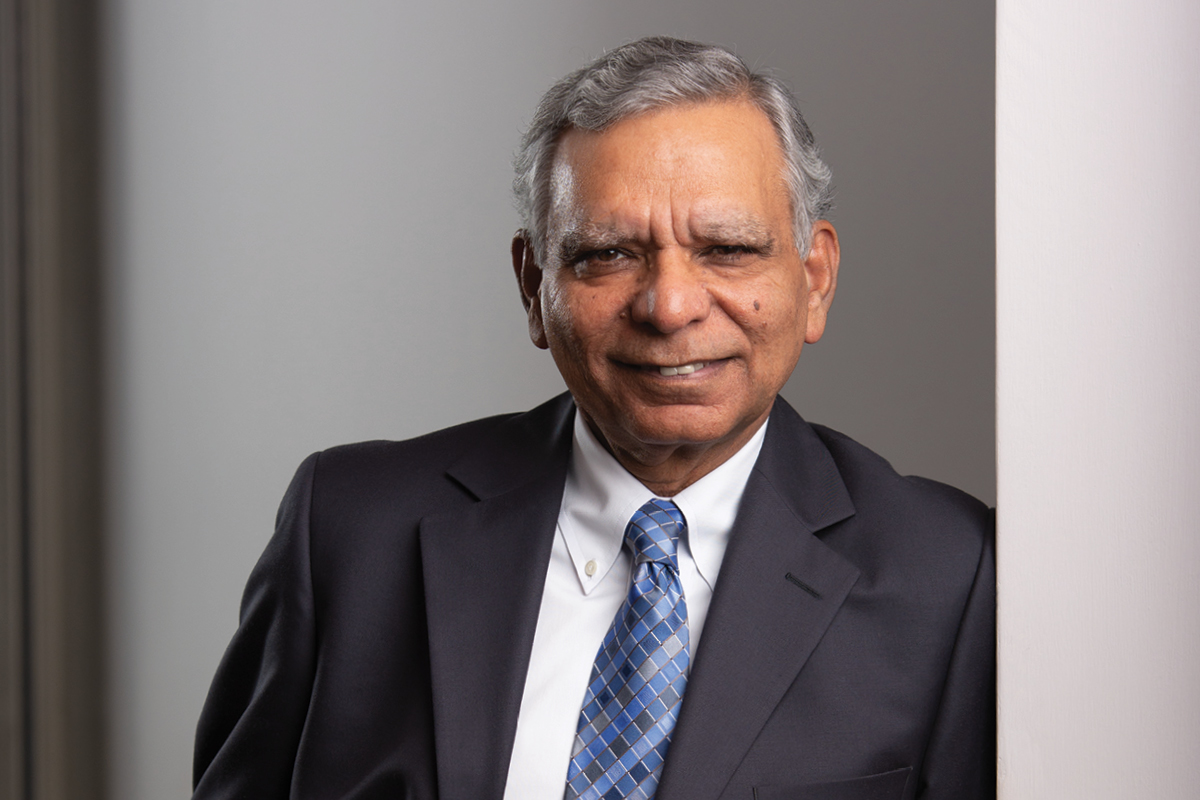During his 40 years working in the banking industry, Sanjiv Bhasin has experienced his fair share of professional failures. But in his own pragmatic style, the CEO of AfrAsia Bank believes the lessons learned from setbacks along the way only forced him to remain relevant in an industry shaken to its core by financial technology. “I had to remodel myself to change and be flexible,” he admits.

“This industry is mature, competitive and challenging, and over the past two decades the increased need for rapid transformation has been driven by service providers more than the conventional banking personnel traditionally charged with protecting the domain of banks.
“This whole dynamic ecosystem creates opportunities, and I was lucky to see a few and develop those. I have always believed that being on a constant learning curve keeps you relevant. That’s helped me be where I am today.”
AfrAsia Bank, founded in Mauritius in 2007 and regulated by the Bank of Mauritius, serves a global market, with offices in South Africa and partnerships with IBL, the National Bank of Canada and Intrasia Capital in Singapore.
It pioneered cloud-based financial solutions in Mauritius and was the first bank there to offer contactless technology in credit cards. While Sanjiv concedes the local market may be small compared with larger economies, he recognises Mauritius as a well-established international financial centre with a formidable track record.
“Of course, our clients are familiar with the services of international banks,” he says. “Can we match that? Can we better that? This challenge keeps us on our toes and pushes us to always compete with the best. Being agile is the need of the hour.”
As in most industries, nowhere is that agility more needed than in technology, particularly when it comes to the demands of today’s gadget-dependent generation. While Sanjiv firmly believes that banking will remain as a service, he regards his biggest challenge as not only understanding customer needs but discovering what they are comfortable with.
“After all, technology is nothing but an enabler to perfect our service for our customers,” he explains. “Technology offers a global platform and opportunity for success, but it can also be truly overwhelming and burn your investment if you get it wrong.
We have to identify which platform is commercially suitable for our institution, then ensure our back office is organised to process and respond at the speed offered by the tech platform and at the rate the customer expects.
“Also, in a global world you are never unique in your ideas and you need to improve your awareness, even of some remote fintech effort launched by a few young entrepreneurs. Having the right partnerships with fintech providers is crucial. That way we can provide superior service and connectivity to consistently meet expectations.”
Sanjiv learned early in his career the value of technology while he was responsible for redesigning and centralising operations at HSBC where he started as a management trainee in Mumbai. He stayed for 27 years, working his way up to COO India, before moving to Rabobank and DBS.
“For more than half my career I have been in leadership roles, in multiple locations and mostly customer focused,” he reflects. “This diversity taught me very quickly that customer behaviour is highly unpredictable and cannot be boxed.

“Meanwhile, my four years at Rabobank was an insightful introduction to European culture and to a cooperative banking framework. The bank’s focus was food and agriculture, and, yes, I learned a lot about vineyards, winemaking and how to select good wines.”
Sanjiv describes his leadership style as “undoubtedly democratic”, believing success emerges from well-bonded teams. He adds that leadership also has to evolve from the surrounding environment, and that means being adaptable to different circumstances.
“We have a mindset to change and are constantly focusing on areas to disrupt the market when an opportunity arises,” he explains. “Listening to our customers’ requirements is critical and being aware how competition is shaping up is equally critical.
Meanwhile, our teams have to be at the forefront, their aspirations and strengths understood and woven into the journey of success mapped for the institution.
“We have a mindset to change and are constantly focusing on areas to disrupt the market when an opportunity arises.”
Customer focus, innovation and a team passionate about exceeding customer expectations keeps our expansion plans heading in the right direction.
“More importantly, you have to accept that you will have failures in your leadership journey. This has to be accepted and you have to learn from that. If you haven’t faced any failure, then maybe you haven’t experimented enough.”
Proudly supported by:




